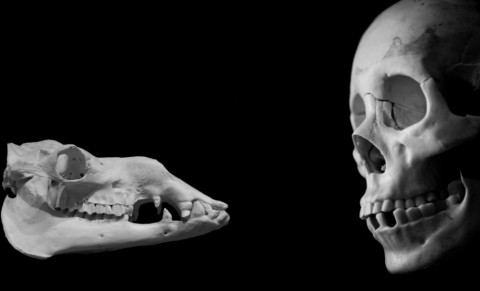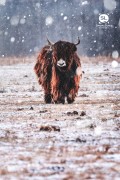July 1945 Ueno, Japan
Ueno Zoo housed exotic animals from around the world. The officers at war shipped them from faraway places. The handsomest leopards with shiny tassels arrived. The longest, most venomous snakes were shipped in woven baskets. Ueno Zoo overflowed with parades of 700-pound polar bears. The line to see the bears winded back towards the bridge and up the steps so the curious town could greet the pure white beasts. The beasts did not come from Japan, but they were welcomed. There were banners and bright-colored flags and silver chimes on the road to school that announced them.
The officers began to disappear. Even their bodies were gone. Nobody was ever safe. The summer drills were announced. The town rallied to save its supplies. But bears used town supplies. The zoo owners used a gun to shoot four bears dead. There were postings on the road to the town’s school about the four dead bears. They said the beasts died for the country. The school children mourned and hung prayers on the shrine. They wrote letters to important officials to transfer the beasts to the Nagoya Zoo where they kept more supplies. But the officials said the “wild beasts” might escape the zoo during an air attack. The beasts were dangerous. So, the children waited for an order to transfer the beasts, or for an air attack. What came was an order, rather, to build a monument for the beasts’ martyrdom. It followed a troubling silence. The owners shot down the rest of the bears.
Now the owners wrote a letter to the important officials. They begged to transfer just one elephant and one leopard to the Nagoya Zoo. But the owners were transferred out of the zoo instead. Three young officers replaced the owners. There were guards, too. The officials visited the town. They called a meeting to address Ueno. They said the beasts were not being killed by them, but by the war. The beasts were martyrs for the country. The officials declared that school children ought to praise the beasts. Who wouldn’t hope to be martyrs like them? The children had heard the word martyrdom before. It was a word that turned someone dead into a hero. But a word did nothing for someone dead. It must do something for the people that were still alive.
After the officials returned to the main city, they sent an order into town. The officers at the Ueno Zoo must conserve their bullets. They were told to stop shooting their guns. They must now martyr the beasts creatively. This meant starvation and wounding. The children learned from the postings that the officers could use swords and knives and machetes. Although, beasts could live stoutly with a pierced stomach. The officials ordered the officers to post the gory details for school children. The officials believed it would make the children stalwart to hear it. The children painted signs and wore golden colors to honor the dead beasts, but some children must have been born brave.
The postings on the road changed: The cranes, doves, all other birds, and three hippopotami had been buried. Last week, two brown bears, three black bears, a sun bear, three lions, five leopards, a tiger, a cheetah, a rattlesnake, a python, two bison, a leopard cub, and three elephants died. The officers closed the zoo. They closed the bridge to the zoo. The dead beasts made the children delirious. It made them bloated and terrified for their lives. If they were too loud, too beautiful, too big, the officers may come to make them martyrs.
The officials paid for a memorial to be erected for the dead beasts. Beside the entrance of Ueno Zoo, the memorial looked something like a glossy white basin. In the middle, there was a black marble box with an unrealistically large bow. The cherry blossoms bloomed dutifully and stayed longer until they laid down to make a path of petals around the memorial. When the children closed their eyes, they agreed the memorial looked ordinary. But it felt empty and lonely because it seemed the bow might unravel and the box might open, and out of it, something would come forth. But each time anyone stood in front of the memorial to pray, nothing happened.
The children experienced for the first time that they could recall the feeling of fear. They were afraid to be alive. Smaller classes walking to their day care centers with boxy backpacks turned their bucket-hat heads, entertained by the trees during solemn times. They passed the school gates, crossed the lawn, leapt over the ditches beneath the metal ring bars, swept through the building of their eighteen classrooms, and down the hallway of cloth-bound doors. They wandered into their tiny homeroom of dusty windows, left unwashed for some time now, to see the blurry shadows of other children who had already seated themselves—the soft ways in which they adjusted their lithe arms over their desks, or sifted through their hair falling across their shoulders, and the glow of light between the strands, their breaths. They learned a distinct fear. They did not speak of guns. But the officers and officials looked at them strangely. The children did not notice it was how they had always looked at them. It was how they looked at the zoo. The children understood that they, themselves, were beasts.

Notes from Guest Reader W. Todd Kaneko
‘Ueno Zoo’ entertains with its absurdity, yet horrifies with not only its roots in the historical record, but also its appropriateness given the times we currently live in. It’s at once alien and familiar, beautiful in its eeriness.


 The core workshop of SmokeLong Fitness is all in writing, so you can take part from anywhere at anytime. We are excited about creating a supportive, consistent and structured environment for flash writers to work on their craft in a community. We are thrilled and proud to say that our workshop participants have won, placed, or been listed in every major flash competition. Community works.
The core workshop of SmokeLong Fitness is all in writing, so you can take part from anywhere at anytime. We are excited about creating a supportive, consistent and structured environment for flash writers to work on their craft in a community. We are thrilled and proud to say that our workshop participants have won, placed, or been listed in every major flash competition. Community works.